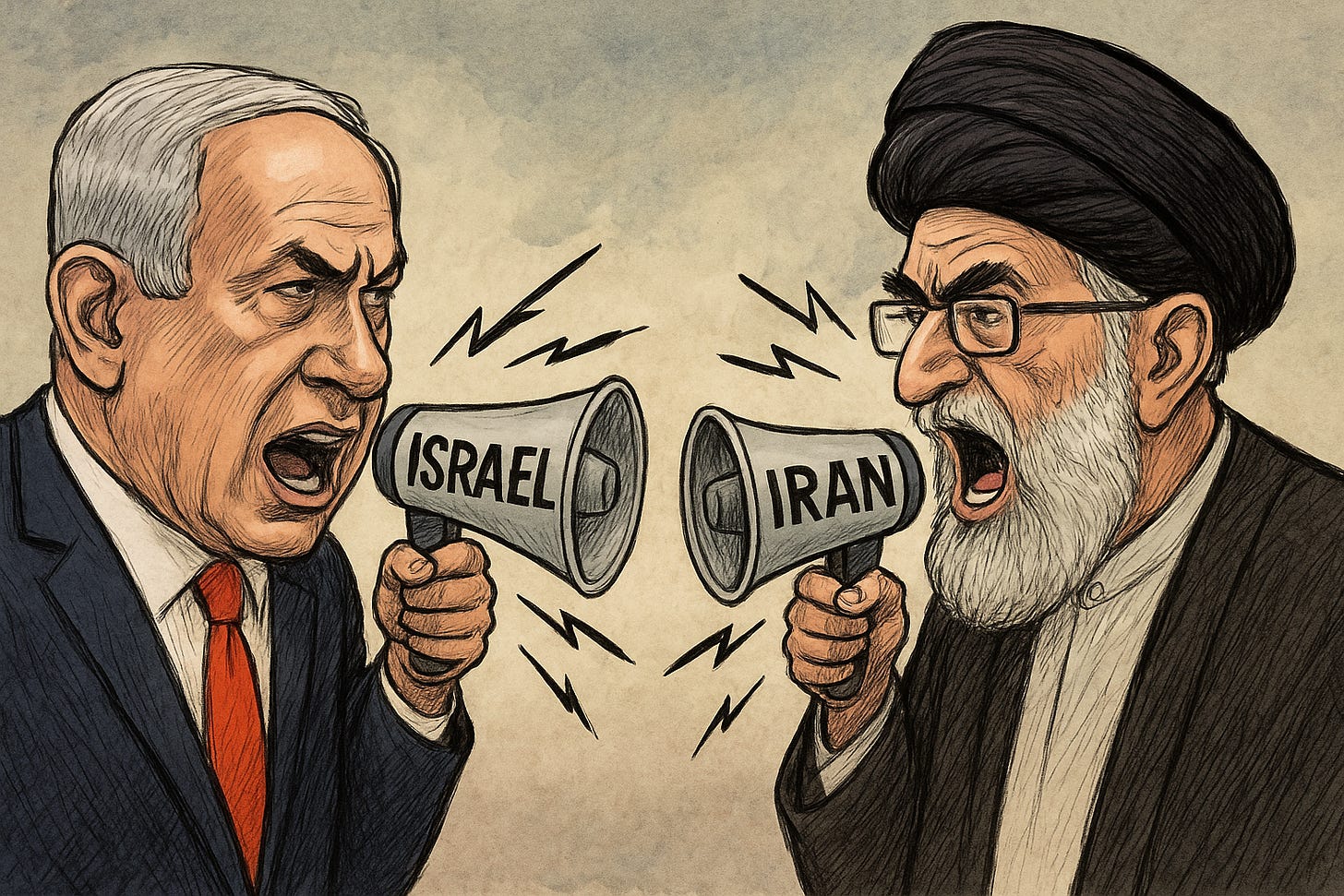The Israel–Iran war of narratives
One week into the conflict, we examine the claims, counterclaims, and narratives shaping the most dangerous confrontation the Middle East has seen in years.
One week into the Israel–Iran war, the world stands on the edge of something far larger and far more dangerous than a bilateral conflict. America might get involved, exposing its military and other assets spread across a volatile region. Iran may block the Strait of Hormuz, a move that could trigger a global oil shock and plunge the world into recession. And if the US is truly drawn into the war directly, you don’t need paranoia to imagine China seizing the moment to move on Taiwan, or Russia escalating aggression in Ukraine.
Rarely has the international order been so exposed. And it’s happening at a time when the discourse is increasingly driven by nonsense on social media — indeed, this is the week that we learned that more Americans get their news from social media than from journalistic operations. So it’s essential to understand what’s really happening. What are the arguments, fears, and justifications? What lines are being crossed and precedents being set?
Here’s our attempt to lay out, clearly and without agenda, the arguments advanced by both Israel and Iran, and other players too, the shifting international response, and the deeper moral and historical questions surrounding regime change, targeted killings, and interference in sovereign affairs. This war is already global in its consequences. Understanding it should help us all deal with what may come next.
Keep reading with a 7-day free trial
Subscribe to Ask Questions Later to keep reading this post and get 7 days of free access to the full post archives.




